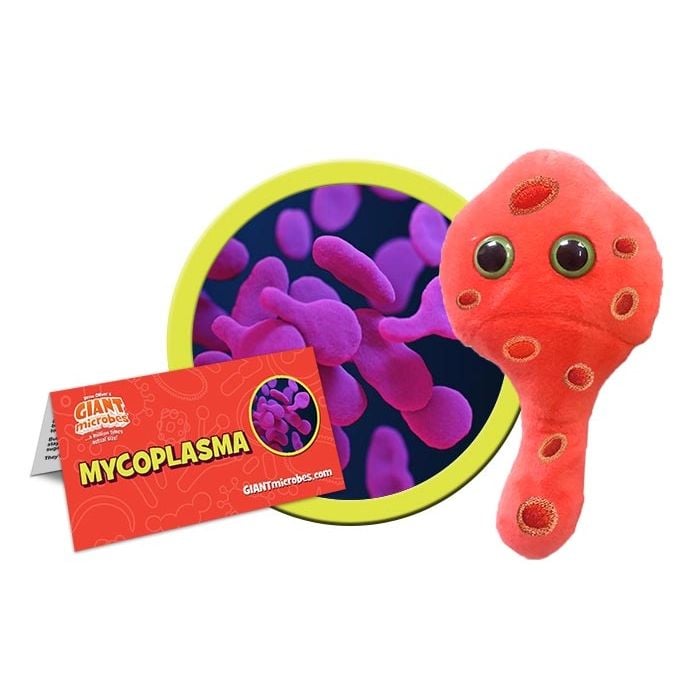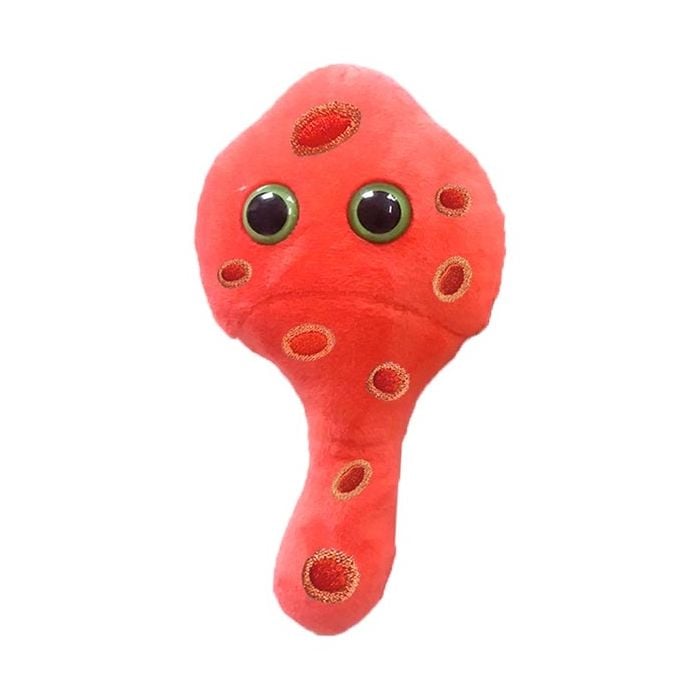Mycoplasma (Mycoplasma genitalium)
Out of Stock
Product Details
Additional Information
| Sizes | Giantmicrobes are based on actual microbes, cells, organisms and other critters, only 1,000,000 times actual size! Gigantic (GG) 40-60cm XL (XL) 25-38cm Original (PD) 12-20cm Keychain (KC) 5-10cm with clip |
|---|---|
| Materials | Plush from all new materials. Stuffed with polyester fiber fill. Surface washable: sponge with water & soap, air dry. |
| Packaging | Each plush microbe includes a printed card with fun, educational and fascinating facts about the actual microbe or cell. |
| Safety | Every product meets or exceeds U.S. and European standards for safety. For ages 3 and up. |
All about Mycoplasma (Mycoplasma genitalium)
FACTS: Mycoplasma genitalium is an emerging STD, ranking second only to chlamydia in prevalence. More than one in 100 adults may carry this microbe. There are about 200 types of mycoplasma bacteria and most are harmless. Mycoplasma genitalium, however, is one that you may have to worry about. Infections can lead to serious health problems including urethritis, cervicitis, and pelvic inflammatory diseases.
Mycoplasma was first identified in the 1980s as a sexually transmitted disease, yet it remains much less well known than other STDs. Even medical professionals and public health officials may not be familiar with this microbe. Yet it is widespread and should not be ignored. Signs of mycoplasma infection may include pain, discharge, and bleeding. But it may be very difficult to diagnose as symptoms can be non-specific and non-existent. Men with inflammation of the urethra or other symptoms of urethritis should be tested for mycoplasma. Women with persistent inflammation of the cervix or other symptoms of cervicitis may also be infected.
Treatment is another challenge as mycoplasma is frequently resistant to antibiotics commonly used for STDs. Testing for this bacteria can be cumbersome and time consuming. One key to optimizing treatment is to increase awareness. Since clinicians may not know much about mycoplasma and its role in infections, they may prescribe an antibiotic for a different STD. Healthcare professionals should consider mycoplasma and treat patients based on signs, symptoms, and the elimination of other known causes of certain infections. Mycoplasma might well be the culprit in cases of persistent or recurrent urethritis, cervicitis, and pelvic inflammatory disease. As with all STDs, knowledge and prevention are key. Learning a little something about nasty little Mycoplasma genitalium should help everyone act safer and smarter.













